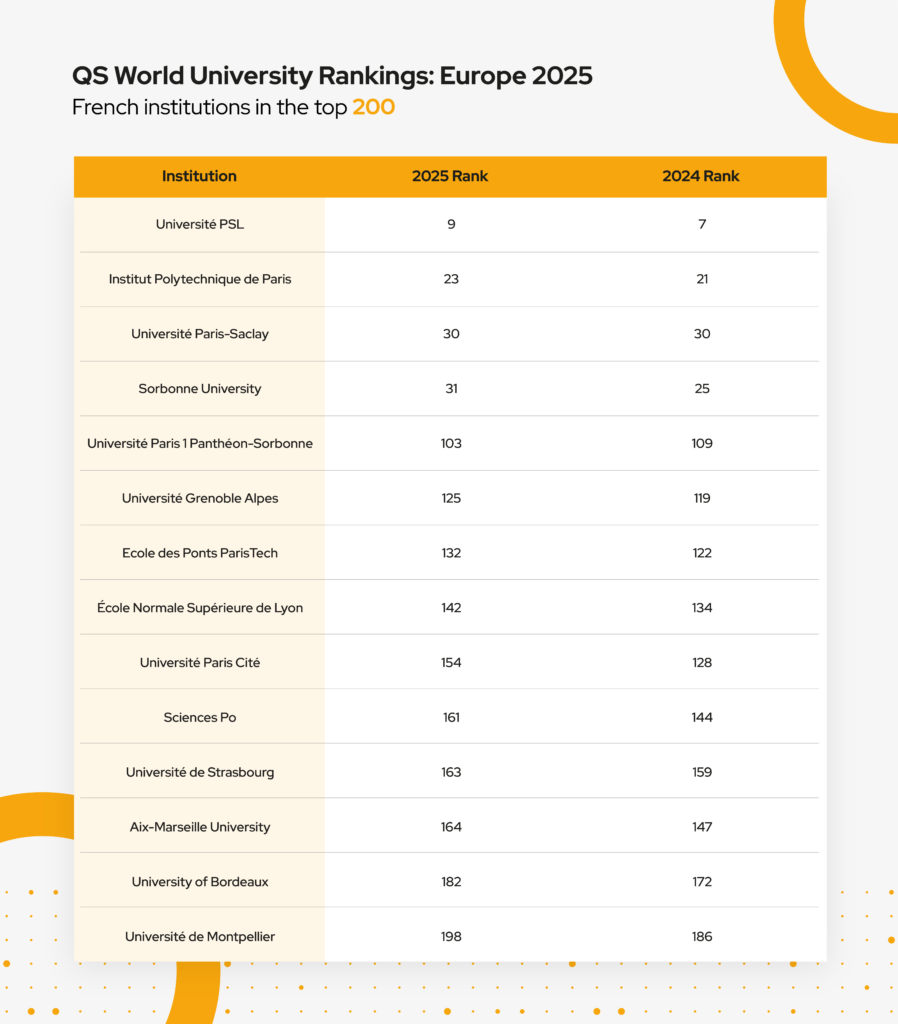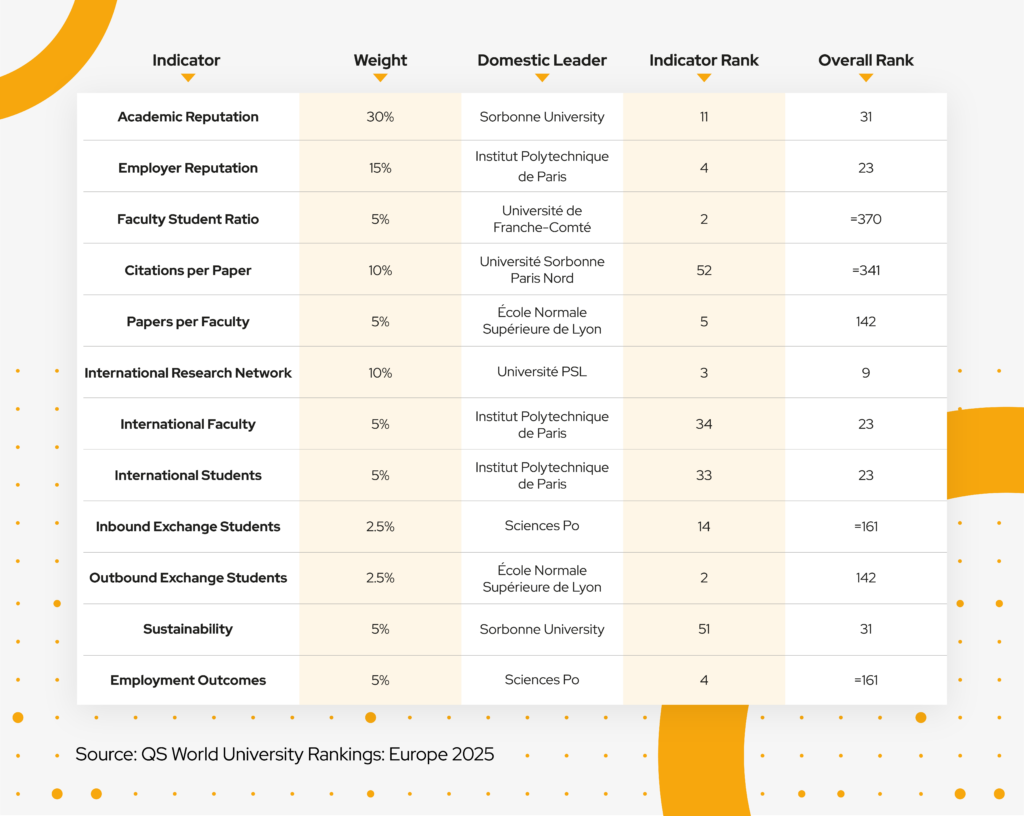
Following our recent analysis of Spain’s institutional performance in the QS World University Rankings: Europe 2025, we now turn our focus to France – a nation excelling in collaboration and graduate employability.
French universities are setting high standards in employability metrics. In Employer Reputation, three institutions rank among Europe’s top 10, second only to the UK, which boasts six. Additionally, France matches the UK with three universities in the top 10 for Employment Outcomes.
France has 49 institutions in this year’s ranking, with four institutions in the top 100 and 14 in the top 200. Université PSL is the top ranked French institute in ninth place, despite dropping two places from seventh last year.
Top 100
Two universities have shown remarkable improvement for France: Université Polytechnique Hauts-de-France and Université de Bretagne Occidentale (UBO). Both universities have climbed over 50 places, thanks to enhancements in Employer Reputation, Employment Outcomes, and their International Research Network.
The following table shows the national leader in each of the 12 performance indicators we use in this ranking:

What French universities are leading in key metrics?
The following table shows the national leader in each of QS’ 12 performance indicators

Ben Sowter, QS Senior Vice President, said: “French universities clearly produce exceptionally employable graduates, as evidenced by their strong employer reputation and high graduate employability rates. Additionally, France remains a leading global hub for cross-border collaborative research, driving impactful studies on profound global challenges. While the country faces political uncertainty, it is essential that higher education excellence remains at its core.”
Research and discovery
While French institutions face challenges in key research metrics, with 82% dropping in Citations per Paper and 74% in Papers per Faculty, there are still noteworthy achievements. Université Sorbonne Paris Nord is the sole French institution in the top 100. for Citations per Paper. Meanwhile, 11 institutions, including Université Paris Cité, Université de Montpellier, and Université Grenoble Alpes, made the top 100 for Papers per Faculty.
Eight French institutions are in the top 100 for Academic Reputation, led by Sorbonne University ranked in 11th place.
Global engagement
Six French universities feature in the top 50 for Inbound Exchange Students, with Sciences Po taking the highest rank in 14th place. Four French institutions rank in the top 10 for International Research Network, matching the UK’s performance in this indicator.
Institut Polytechnique de Paris rank in the top 50 for its International Faculty and International Student ratios, ranking 34th and 33rd respectively. Additionally, six French universities are among the top 50 for Inbound Exchange Students, with Sciences Po ranking 14th. In the Outbound Exchange Students category, École Normale Supérieure de Lyon and Institut National des Sciences Appliquées de Lyon (INSA) rank in second and fourth place respectively.
Employability and outcomes
French institutions continue to excel in employability. Sitting in the top 10 for Employer Reputation are Institut Polytechnique de Paris (ranked fourth), Université Paris-Saclay (ranked sixth), and Université PSL (ranked 10th ). For Employment Outcomes, Sciences Po, Institut Polytechnique de Paris, and Université PSL rank fourth, fifth, and seventh, respectively. Université Toulouse 1 Capitole saw the biggest climb – reflecting a broader trend of improvement, with 74% of French institutions enhancing their ranks.
Sustainability
Despite their strengths, French institutions face challenges in sustainability. There are no French universities featured in the top 50 for Sustainability, with Sorbonne University placing highest at 52nd place. Furthermore, 82% of institutions with previous sustainability data have seen their rankings decline.